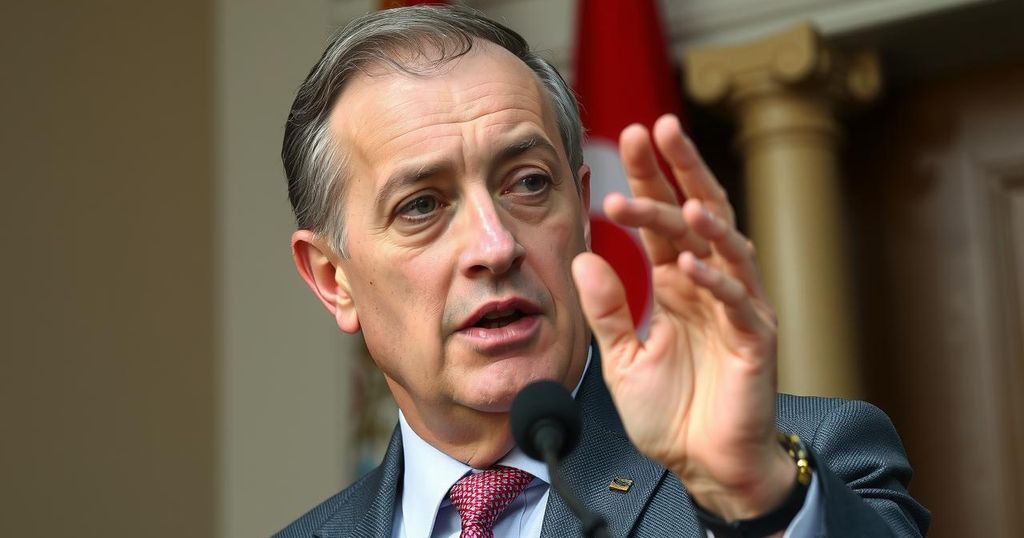Trump’s Expected Non-Interventionist Policy on Syria

Donald Trump is expected to adopt a non-interventionist stance in Syria as he assumes office. He has criticized U.S. involvement in foreign conflicts, deeming Syria a “land of sand and death”. His remarks emphasize a hands-off approach, a position supported by his vice president-elect and incoming intelligence director, Tulsi Gabbard. The complexities ahead remain uncertain as various advisers present differing opinions.
President-elect Donald J. Trump is poised to confront a significant crisis in Syria as he takes office in January. His potential strategies regarding the war-torn country, now largely under the control of various rebel factions, remain ambiguous. Trump’s perspective appears to lean towards a non-interventionist stance, reflecting his previous criticisms of U.S. involvement in the Middle East. He has labeled Syria as a territory characterized by “sand and death,” and he has expressed skepticism about American efforts to influence political transformations in post-dictatorship nations like Iraq and Libya.
As the ongoing civil war in Syria continues to escalate, particularly with recent developments in Damascus, Trump has publicly declared that America should disengage from the conflict, stating, “This is not our fight. Let it play out. Do not get involved.” This sentiment aligns with the views of his Vice President-elect, JD Vance, who has also been critical of America’s foreign policy interventions. Furthermore, Trump’s commitment to appoint Tulsi Gabbard, a former congresswoman known for her opposition to U.S. engagement in Syria, may signal a consistent approach focusing on the principle of non-involvement.
The implications of Trump’s position could shape U.S. foreign policy in the region significantly. As various advisers and international leaders present differing opinions on the issue, the upcoming months may clarify how the Trump administration will navigate the convoluted landscape of the Syrian crisis.
Despite the complexities surrounding Syria, Trump’s articulated abhorrence for prolonged foreign military engagements and his strong opposition to intervening could lead to a markedly different approach in U.S. foreign relations with Middle Eastern nations, reflecting a radical departure from the policies of prior administrations.
The Syrian civil war, which began in 2011, has transformed the country into a battleground involving multiple factions, including recognized rebel groups and extremist organizations. The conflict has drawn international attention and intervention, particularly from the United States, raising concerns about terrorism, refugee crises, and geopolitical stability. The incoming administration of Donald Trump faces the challenge of formulating a cohesive and effective response to the ongoing turmoil in Syria while managing competing priorities and influences from various national and international stakeholders. Trump’s pre-election statements suggested a preference for a reduced U.S. role in foreign conflicts, complicating the potential for direct involvement in Syria.
In summary, Donald Trump appears set to pursue a non-interventionist policy regarding Syria as he takes office, advocating for a hands-off approach to the country’s ongoing civil war. His prior statements and choice of advisers suggest a priority on avoiding deep entanglement in complex foreign conflicts. As the situation continues to evolve, it remains essential to monitor how these positions will translate into actionable policy and impact the broader Middle East.
Original Source: www.nytimes.com








